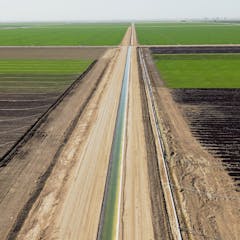
Articles on Environmental law
Displaying 1 - 20 of 187 articles

Inconsistent laws and penalties for water theft in the Murray-Darling Basin make compliance and enforcement especially challenging. But it doesn’t have to be this way.

New Zealand’s plants and animals are globally unique and underpin primary production and tourism. The government’s fast-tracking proposal threatens to erode the natural capital the economy relies on.

As new climate-related cases are brought to court, our expert outlines key aspects that could change the legal landscape.

Hard rock minerals like gold, silver, copper and lithium on public lands belong to the American public, but under a 150-year-old law, the US gives them away for free.

Ghana needs strong political will to enhance its climate change regulation.

An important but controversial legal doctrine, known as Chevron deference, is at issue in two fishing cases. The outcome could affect many sectors across the nation.

Legally binding deals struck with landholders can help protect and restore the environment over the long term.

Australia has a once-in-a-decade opportunity to fix environmental law. A new Wentworth Group report says the cumulative impacts from multiple projects must be considered.

A legal researcher studied court cases in 30 countries to see what works.

Do environmental reviews improve projects or delay them and drive up costs? Two legal scholars explain how the law works and how it could influence the ongoing transition to renewable energy.

Southwest states have bought time with an agreement between California, Arizona and Nevada to cut Colorado River water use by about 14%. Now comes the hard part.

In Sackett v. EPA, a suit filed by two homeowners who filled in wetlands on their property, the Supreme Court has drastically narrowed the definition of which wetlands qualify for federal protection.

The Supreme Court has upheld a controversial California law requiring pork sold in-state to be humanely raised, no matter where it’s produced. Pork producers say it could drive up food prices.

After the Supreme Court overturned the Obama administration’s strategy for reducing power plant carbon emissions in 2022, the Biden administration is taking a narrower but still ambitious approach.

Nearly 95% of deforestation in the Amazon occurs within 3.5 miles of a road or near a river. Brazil’s plans to ramp up exports may be on a collision course with the forest.

A new study reveals wide disparities among state-issued Clean Water Act fines, and even among federal fines from regions to region. A law professor explains why it may be illegal.

A new work of environmental ethics argues that the constitutive value of natural places can be understood in the language of rights.

Energy transition minerals are essential to tackling climate change. But First Nations people must have a genuine say in where and how this happens.

The European Commission or any Member State can bring an action before the Court of Justice alleging an infringement. If it does not comply with the judgment, it will have to pay a fine.

Australia cannot get its environmental act together. We don’t even have the information we need to fix environmental problems. But there is a better way.
